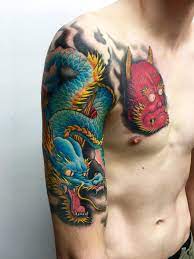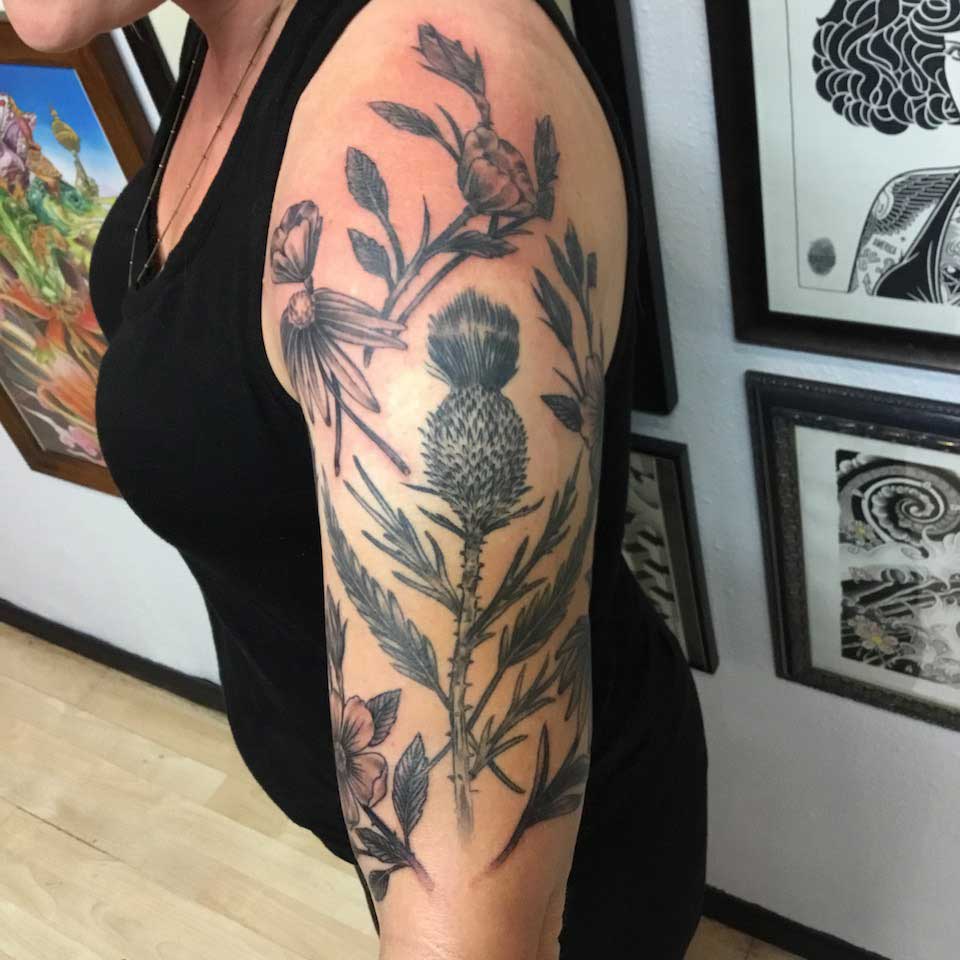
Traditional Japanese Tattoos have a rich heritage. While those outside Japan may find it intimidating to get one, there are ways you can show your affinity without offending or offending others.
Maneki Neko: Lucky Cat
Maneki Neko, or Lucky Cat, is an illustration that depicts an image of a lucky feline with a raised paw to represent good luck and wealth.
Dragons: Strength and Power
Dragons are a classic symbol for Japanese Tattoos as they stand for strength and power. Additionally, dragons are widely considered magical beings who can represent good or evil forces, often combined with other animals like phoenixes or snakes to add layers of symbolism. White is often associated with dragons as it symbolizes purity and truthfulness. They usually suggest a Yin and Yang energy balance, representing nature vs. life duality.
Samurais: Courage and Strength
Samurais are widely revered symbols of courage and strength, making this design ideal for arm tattoos, but they can also be inked onto other areas of the body as desired.
Koi Fish: Courage and Perseverance
Koi fish Tattoos are a beloved Japanese symbol, often representing courage, hope, and fulfilling one’s destiny. Furthermore, these iconic fish have long lifespans, symbolizing perseverance when faced with obstacles and hardships.
Daruma: Good Luck and Social Standing
Daruma (hollow round dolls) is another traditional Japanese symbol for good luck modeled after Bodhidharma, who founded Zen Buddhism in Japan. Tattooed Daruma can also indicate one’s social standing – white is typically associated with noble birth, while red denotes serf or peasant origins.
Namakubi: Reminder of Transience
Namakubi Tattoos depict severed heads as a reminder of life’s fleeting nature and to highlight its transience. Originating in feudal Japan, where wars were waged, and rituals such as Seppuku (self-disembowelment and beheading) were commonly practiced, Namakubi Tattoos have their roots in reminders that change is constant and reminding us not to take anything for granted.
Oni Mask: Struggle and Contrast
Oni, or demons, play an integral part in Japanese culture. An oni mask tattoo could symbolize your internal struggle between doing good and bad things in life, creating a stark juxtaposition between something powerful yet fearsome and beautiful and serene. Many people get this tattoo together with a dragon for maximum impact.
Kintaro and Namazu: Legends and Symbolism
Kintaro, inspired by an urban legend of a boy who became a hero by capturing Oni, is another popular character to see as a tattoo. You might also spot Namazu tattoos, referring to an earthquake-causing giant catfish.
Masks for the Neck: Symbol of Wealth and Fortune
Japan uses masks as symbols of life and culture. One such character, Ebisu, symbolizes wealth and fortune – those seeking success may consider getting this character tattooed onto their bodies for good luck! Koi carp have long been seen as symbols of strength and perseverance in Japanese culture, serving as an icon for Boy’s Day, when families started flying them on poles at home to honor their son’s accomplishments.
Hands: Sacred Symbol
Japanese culture holds the hand as a sacred and spiritual symbol, leading many to choose this body part for tattooing. This piece mixes traditional stylings with flower lotus designs – a symbol of enlightenment and rebirth – for an eye-catching result.
Octopus: Strength and Resilience
The octopus is an iconic marine creature and a beloved symbol for those who appreciate its strength and resilience, inspiring many fans of sea life. With its ability to regenerate lost limbs, its example also serves as an essential lesson to those looking to remain resilient despite whatever challenges life presents.

